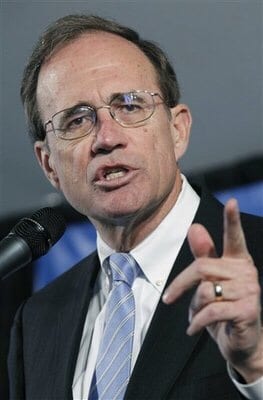
In September, California Governor Gavin Newsom signed the Fair Pay To Play Act into law, allowing college athletes to make money from the use of their name, image and likeness.
The NCAA initially objected to the law, as did other colleges and universities across the country, with concerns ranging from California schools potentially having unfair advantages when recruiting athletes to ruining the amateurism and bringing professional aspects, such as hiring agents and signing sponsorship deals, into college sports.
In October, however, NCAA board members voted unanimously to start the process of modifying rules to allow college athletes to profit from their names, images and likenesses.
Here in Mississippi, State Senator Joel Carter (SD 49) is planning to file a bill in the 2020 legislative session that would add the Magnolia State to the list of nine other states considering some version of the Fair Pay To Play Act.
When asked what motivated him to pursue this legislation, Carter told Y’all Politics, “I had been following the California law and the decision by the NCAA to allow this to happen. I saw that 9 other States are trying to do the same thing.”
“It seems like every year a star college athlete suffers a career ending injury and they never make it to the pros,” Carter added. “A lot of the kids have nothing when they show up for college.”
Carter posted on his Facebook page Sunday that the notion of this bill “has been more controversial than I thought it would be.”
The South Mississippi Republican says the ideal result would be if a student athlete’s image or likeness is used to promote a product then the student would be compensated.
“The debate will be about scholarships and the college’s use of the student athlete’s image and likeness,” he said. “Some think the student should have to pay the scholarship back and some say the college is making money off the student as well and the scholarship should be left alone. There is lots of debate and work to be done.”
The anticipated debate over the measure and the varying points of view are why Carter’s bill will include a task force to provide guidance on the specific parameters, he says. The legislation, if passed, would not become active until 2022 following the work of this task force that would include athletes, athletic directors, and coaches from universities and community colleges, as well as appointees by the Speaker and Lieutenant Governor.
The NCAA board wants to implement new rules by January 2021.
California’s law prohibits schools from punishing athletes accepting endorsement money starting in January 2023.
Carter says he hasn’t spoken with the coaches and colleges yet, but, “The student athletes I’ve talked to are definitely for it.”
He says he has also spoken to incoming Governor Tate Reeves and Lieutenant Governor Delbert Hosemann, and “they’re open to it.”
“I keep missing the Speaker,” Carter said. “I’m really looking forward to Speaker Gunn’s feedback as he was a College football player.”









